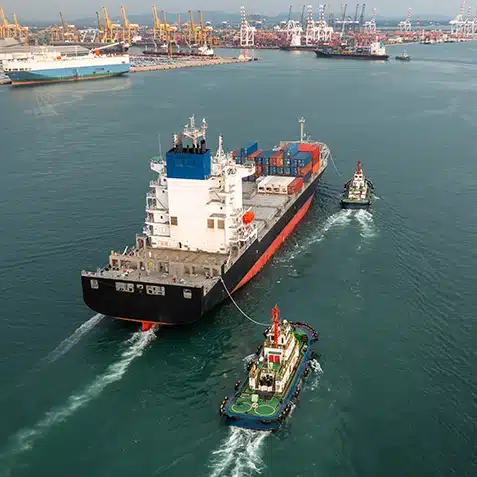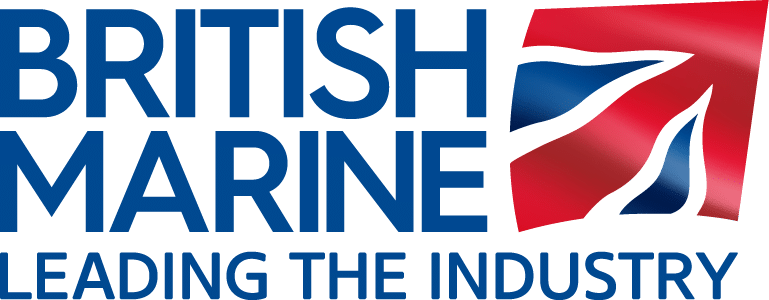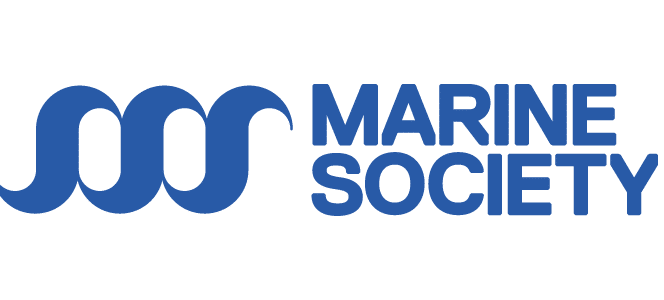Maritime Pilotage Course
Diploma in Maritime Pilotage
Maritime Pilotage
The MTA’s Port Pilotage Operations Diploma delivers expert training in vessel entry coordination, tug deployment, and harbour approach procedures, all under the supervision of port control authorities.
This course is designed for professionals supporting pilotage operations from sea to berth. It’s ideal for seafarers, tug crews, terminal officers, VTS staff and marine operatives working within controlled entry zones.
Note: This course is focused exclusively on port pilotage and vessel navigation within maritime operations. It is not related to aviation or military pilot training.

Professional Marine Pilotage Qualification
Learn how to support the safe arrival and movement of large vessels through pilotage zones, with structured training in risk zones, tug strategy and port authority communication.
Contact us below to enrol today, or speak with our experienced course advisors.

Duration:
12 - 18 months
Learn at your own pace
Online Course:
Study from anywhere

Cost:
Diploma: £3,195
Certificate: £2,295

Recognised by: 
Marine Pilotage Diploma vs Certification
Choose the right path for your career:
Comprehensive Training: Including vessel approach procedures, pilot boarding coordination, tug dispatch strategies, VHF communications, port control operations and compliance with IMO traffic safety standards.
Flexible Study Duration: 12 – 18 month depending when you enrol to the program, study online at your own pace, from anywhere in the world.
Marine Industry Career Opportunities: 100% Online, with access to our student learning portal
Long-Term Career Impact: Harbour Control Officer, Tug Operations Coordinator, Terminal Marine Support, Port Pilot Liaison Officer or Marine Traffic Supervisor.
Global Recognition: Our Diplomas are recognised by the University of Portsmouth and are supported by industry associations.
Assignments: One assignment is required to be completed and submitted at the end of each module, based on that particular subject.
Certification: you will receive a PDF Digital certificate (Printed Certificate Completion Pack available).
Final Examination: There will be a final examination upon completing and submitting all student assignments (exams are sat in April or October).
Post-Nominal letters: On passing the Diploma you can also use these letters after your name: MTA Dip MPilot
Digital Course Badge: Upon successful completion students will receive an exclusive course badge for use on business cards, LinkedIn profiles and website(s)!
Diploma - £3,195
A recognised qualification for those managing or supporting harbour pilotage operations, tug coordination, vessel navigation or port-side marine control.
✔
✔
✔
✔
✔
✔
✔
✔
✔
✔
Certificate - £2,295
Professional training for support personnel or junior officers who do not require a full diploma assessment route.
✔
✔
✔
✔
✔
✔
Marine Pilotage Curriculum: 10 Modules
This course provides comprehensive training for professionals responsible for supporting marine pilotage in ports and controlled waterways.
Course content covers full vessel entry planning, tug and pilot scheduling, navigation risk management, communications protocols, traffic coordination and emergency procedures. You’ll also explore tug-to-vessel interface roles, port authority coordination and operational compliance under local and international maritime guidelines.
This is an ideal training pathway for professionals supporting large vessel movement in harbours, terminals or congested approach zones.
1. Introduction
- Introduction
- History of pilotage
- Types of pilotage
- Conduct of pilotage
- Legal framework – legislative and regulatory requirements
2. Pilotage Training and Techniques
- Pilot Training and Techniques
- Marine Experience
- Methodology
- Simulators
- BRM and BTM
- Cultural Awareness and Management
3. Pilotage Law
- Pilotage and Legal History
- Legal Concepts
- The Law of Contract
- The Law of Tort (Negligence)
- Liability in Contract and Tort
- Responsibilities
- Maritime Law
- The Flag State and Ownership
- The Pilotage Act 1987
- The Pilot
- Trinity House and Pilotage Associations
- The IMO and National Laws
- Pilot Boarding and Pilot Ladders
- Table of Cases
4. Canal and River Pilotage
- Canal Pilotage
- River Pilotage
5. Use of Tugs – The Pilots Perspective
- Types of Harbour Tugs
- Towing Equipment
- Tug Interaction and Associated Risks During Towage Operations
- Ship Design and Towage Equipment
- Manoeuvring with Tugs
- Escorting with Tugs
- Communications and Good Practice
6. Boarding and Leaving a Vessel
- Regulations in Respect of Pilotage Access and Egress
- Boarding and Leaving and Dockside
- Pilot Ladders
- Accommodation Ladders
- Alternative Boarding Arrangements
- Shell Side Doors
- Transition from Pilot Cutter to Ship
- Making a Lee
- Boarding Emergencies
7. Ship Handling
- Anchors and Anchorage
- Open and Closed Side Berths
- Wind, Tide and Weather
- Hulls Shapes and Pivot Points
- Thrusters
- Steam, Diesel, Electric and Nuclear Engines
- Squat and Vessel Interaction
- Article on Azipods
- Marine Guidance Note (MGN) 199 (M)
8. Sea and Offshore Pilotage
- Pilotage and Legal History
- Offshore Pilotage
- Pilotage Areas
- Pilotage and Special Operations
9. Master/Pilot Information Exchange
- The Pilots Role
- Communication
- The Bridge Card and Information
- Monitoring and Teamwork
10. Harbour and Dock Pilotage
- Pilot Exemption Certificates (PECs)
- Pilot Grading
- Local Knowledge
- Vessel Traffic Services (VTS) interface
- Tidal Windows
- Byelaws
- Competent and Statutory Harbour Authorities
- Other Water Users
Hear from our Students
Meet the Course Director
Christopher Hoyle
Christopher Hoyle is a Southampton Unrestricted First Class Pilot where he has conducted some of the world’s largest vessels in the UK’s busiest stretch of water.
As Vice Chairman of United Kingdom Maritime Pilots Association (UKMPA), he is responsible for the growth and engagement of the association. Engaging with government and industry working collaboratively to ensure the safe protection of shipping, port infrastructure and the environment is kept the at forefront of pilots’ activities.
Two years ago, Chris took on the role of editor to “The Pilot” magazine due to his industry insight it now stands as globally recognised industry publication.
Having recently been involved in ultra-large container ship casualties it is Chris’ strong belief the pilots are forefront of loss prevention management.

Marine Pilotage Course FAQs
Find out more about the course with our FAQs below.
How do I become a Harbour Pilot?
Start by gaining seafaring experience, ideally as a senior deck officer or Master Mariner. Most harbour pilots are licensed by local port authorities after undergoing training, assessment and route familiarisation. This course provides valuable knowledge for those supporting port pilotage operations or progressing towards licensed pilot roles.
What does harbour pilot training involve?
You’ll study approach procedures, tug and pilot dispatch, communications with port control, emergency planning and harbour navigation strategies.
What qualification will I receive?
You’ll gain a Diploma in Port Pilotage Operations from the Maritime Training Academy, which is recognised within commercial shipping, tug management and terminal operations.
What kind of jobs does this course qualify me for?
MTA’s Harbour Pilot Course is ideal for those working in tug coordination, harbour control, port-side vessel handling or supporting marine pilot dispatch services.
Do I need experience at sea to take this course?
Not necessarily. The course is suitable for both marine professionals and port-side staff looking to formalise or extend their operational knowledge.
Is this training suitable for VTS or terminal operations staff?
Absolutely, this course is well suited to individuals working in vessel traffic services (VTS), terminal marine teams or berth scheduling departments.
See our FAQ page for more questions answered about MTA courses.
Supported by:



Why Choose The Maritime Training Academy?

Flexible
Online learning allows you to study in your own time, at your own pace from anywhere in the world. This saves on travel and classroom costs and allows you to fit your studies around your job and progress your career.

Supportive
While the nature of distance learning is independent study, we recognise the importance of support. Students can contact us at any time during their course for assistance and our team of industry experts are always on hand for advice.

Expertise
We have over 50 industry experts writing, developing and advising on our course material. We truly believe that allowing students to tap into their expertise and knowledge is of the utmost importance to fulfil your dream career.
If you would prefer to complete this as a classroom-based course, please contact us.
